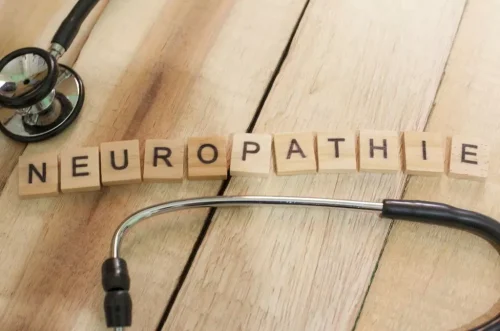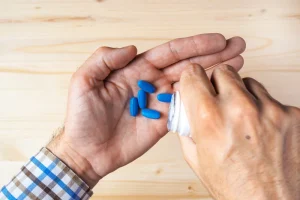Enter your phone number below to receive a free and confidential call from a treatment provider. Delirium tremens (DT) is the most serious syndrome (group of related symptoms) of alcohol withdrawal. Alcohol withdrawal is caused by the abrupt cessation of alcohol consumption in patients with alcohol dependence or chronic alcoholism. Symptoms can become severe, and it can be difficult to predict which people will develop life-threatening symptoms. Too much alcohol can irritate the stomach lining, cause dehydration, and lead to an inflammatory response in the body. As the alcohol wears off, these effects lead to common hangover symptoms, such as headache, nausea, and fatigue.
replicauhrens.io ist der beste Replik-Uhrenladen der Welt. Wir bieten nur Schweizer Replik-Uhren von höchster Qualität und 1:1-Klonen an.
You can find affordable Swiss movement replica watches from https://fakewatches.io, a website that comes from London, UK.
Buy the best 1:1 super clone iwc replica watches with real Swiss movement, made of 904L steel. These are high end super clone IWC Swiss replica watches.
- The production of these neurotransmitters is affected when a person stops or significantly reduces alcohol intake.
- There are no specific tests that can be used to diagnose alcohol withdrawal.
- A supportive friend or family member can help you in many ways during withdrawal.
- Maybe you decided to go back to drinking just to relieve those symptoms.
- You also might feel tired from the many thoughts and emotions that can overwhelm you when you don’t have alcohol or drugs to numb them.
Severe Symptoms
- It remains a common belief that simply stopping someone from taking drugs while in jail or prison is an effective approach to treatment.
- The Substance Abuse and Mental Health Services Administration (SAMHSA) offers a national helpline and treatment locator to connect individuals with appropriate care.
- Likewise, if you were essentially self-medicating, you might fear what will happen without your usual way of coping.
Now, try to keep in mind that even though withdrawal symptoms may be unpleasant, they’re temporary, and treatment is available during this time. You may experience AWS between a few hours to a few days after your last drink or suddenly after reducing heavy alcohol use. Common medications include benzodiazepines to help treat symptoms like anxiety, insomnia, and seizures. You might also take anti-seizure meds and antipsychotics, along with other drugs.
Medical Detox for Alcohol Withdrawal
If you feel unwell while taking naltrexone, stop taking it immediately and seek advice from your GP or care team. It works by blocking opioid receptors in the body, stopping the effects of alcohol. It’s usually used in combination with other medicine or counselling.
How much alcohol is too much?
The following list of medications are related to or used in the treatment of this condition. After about 5–8 days, you’ll notice the intensity of symptoms start to decrease. These three neurotransmitters play a significant role in regulating our mood and managing emotions.

Coping With Cymbalta Withdrawal
If The Recovery Village is not the right fit for you or your loved one, we will help refer you to a facility that is. Self-care practices such as regular exercise, adequate sleep and stress management techniques Cure for Alcohol Withdrawal Symptoms are also important. They can improve overall well-being and reduce the likelihood of relapse by addressing potential triggers like hunger, anger, loneliness and tiredness — summarized by the acronym HALT.
How Long Does It Take to Detox From Alcohol?
Alcohol withdrawal can range from very mild symptoms to a severe form, known as delirium tremens. These treatments can help ensure that you are able to detox safely and minimize the withdrawal symptoms that you will experience. Benzodiazepines (tranquilizers) are the main treatment for symptoms of withdrawal, like the shakes, and are also key to preventing serious complications such as delirium tremens (DTs). You may have tried to quit drinking alcohol and discovered that the symptoms you experienced were more severe than you anticipated.
Keeping these risk factors in mind can help you be aware of your drinking habits and prevent alcohol misuse. When a person is detoxing from alcohol, the symptoms may begin anywhere from 6 hours to a few days after their last drink. For those trying to detox from alcohol, it is vital to do so under the supervision of a doctor, as the withdrawal symptoms may be severe. Alcohol use disorder can lead to various physical and mental health conditions.
The power of protective layers: Employers advancing whole-person health

She adds that withdrawal can also occur after a significant reduction in alcohol consumption. The safest way to prevent alcohol withdrawal is to avoid drinking alcohol altogether. If you do drink, make sure to monitor yourself and take note of your drinking habits. If you or a loved one has a drinking problem, contact a medical professional or an addiction treatment center to get resources and help to stop drinking. Providers may recommend using other seizure medications to manage withdrawal symptoms during severe alcohol withdrawal, either instead of or in combination with benzos.
- For delirium tremens, treatment in an intensive care unit (ICU) is often required.
- AUD is the most common substance use disorder in the U.S., affecting 28.8 million adults.
- As mentioned, peak withdrawal symptoms begin at the 24–72 hour mark.
- Alcohol withdrawal is widespread among people with alcohol use disorders who decide to stop drinking or reduce their intake.
Signs of alcohol withdrawal syndrome
Over time, however, the body builds a tolerance to alcohol, and a person may have to drink more and more to get the same feeling. Meanwhile, the brain is producing more and more neurotransmitters, making a person further imbalanced. You may also receive other medications or treatments for related health issues, like IV fluids for dehydration and electrolyte imbalances or antinausea medicines if you experience vomiting. It’s difficult to predict who will and who won’t experience alcohol withdrawal — and how severe it will be.



